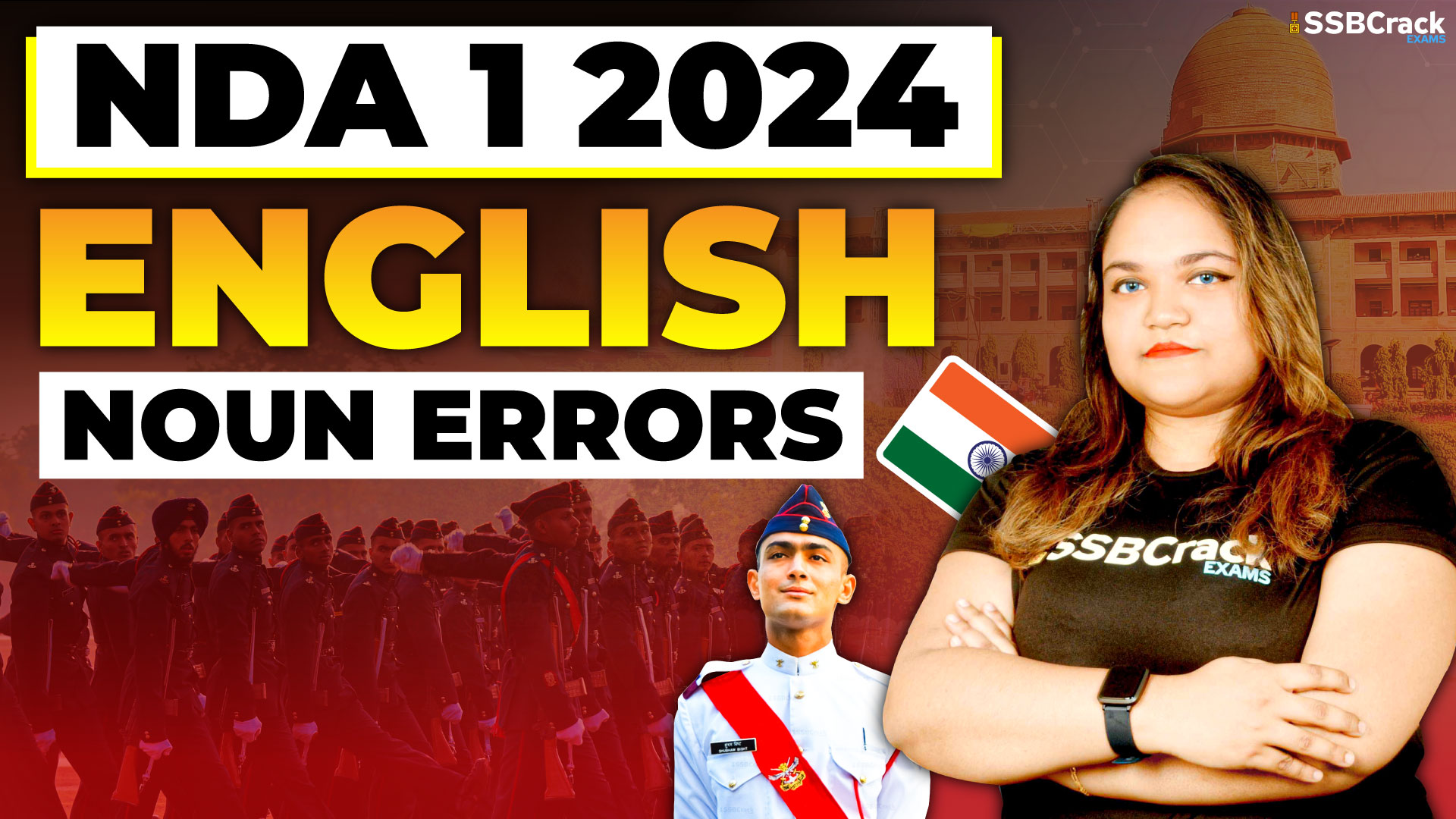National Defence Academy (NDA) examination is a gateway for ambitious individuals aspiring to serve in the prestigious armed forces. Within the English section, a thorough understanding of nouns is not only essential but serves as a foundational pillar for success in the examination. In this article, we will explore the significance of nouns and highlight various noun errors that defence aspirants should beware of when preparing for the NDA exam.
- The Crucial Role of Nouns: Nouns, as the building blocks of language, play a pivotal role in effective communication. In the context of military service, precision and clarity in communication are paramount. Mastering nouns is crucial for constructing grammatically correct sentences, conveying precise meanings, and aligning with the disciplined and structured communication standards of the armed forces.
- Common Noun Errors to Beware Of:a. Subject-Verb Agreement with Collective Nouns: Defence aspirants should be vigilant about subject-verb agreement, especially when dealing with collective nouns. These nouns, representing a group, can take a singular or plural form depending on the context. For example, “The team is” (singular) vs. “The team are” (plural).b. Countable and Uncountable Nouns: Distinctions between countable and uncountable nouns are crucial. Errors may arise when using articles (‘a’, ‘an’, ‘the’) or expressing quantity. For instance, “I have many experience” should be corrected to “I have much experience.”c. Misuse of Possessive Nouns: Possessive nouns indicate ownership, and their misuse can lead to significant errors. Defence aspirants should be cautious with apostrophes, such as “The soldiers guns” corrected to “The soldiers’ guns.”d. Ambiguous Pronoun Reference with Indefinite Nouns: Indefinite pronouns (everyone, someone, nobody) can result in ambiguous references. Aspirants must ensure clarity in sentences like “Everybody should do their part,” where “their” lacks a clear antecedent.e. Confusing Proper and Common Nouns: Distinctions between proper nouns (specific names) and common nouns (general names) are crucial. Confusing them can lead to errors like “The General inspected the Camp,” where both should be capitalized.
- Strategies to Avoid Noun Errors:a. Practice Regularly: Consistent practice with noun-related exercises, including identifying errors in sentences, helps build a strong foundation.b. Understand Grammatical Rules: A clear understanding of grammar rules related to nouns is essential. This includes subject-verb agreement, possessives, and distinctions between countable and uncountable nouns.c. Review and Revise: Regularly reviewing and revising noun-related concepts ensures that aspirants retain knowledge and recognize errors more readily.d. Seek Feedback: Engaging in peer or instructor feedback on written exercises enhances awareness of potential errors and fosters improvement.e. Utilize Study Resources: NDA aspirants can benefit from reputable study resources, grammar guides, and practice materials focused on nouns and related concepts.
Conclusion:
In conclusion, a comprehensive understanding of nouns is indispensable for NDA aspirants aiming to succeed in the English section of the examination. By being vigilant about common noun errors and implementing strategic study practices, aspirants can strengthen their linguistic skills and align themselves with the disciplined communication standards of the armed forces. A solid grasp of nouns is not just a test-taking necessity but an invaluable asset for effective communication in the dynamic and challenging environments that military service entails.







